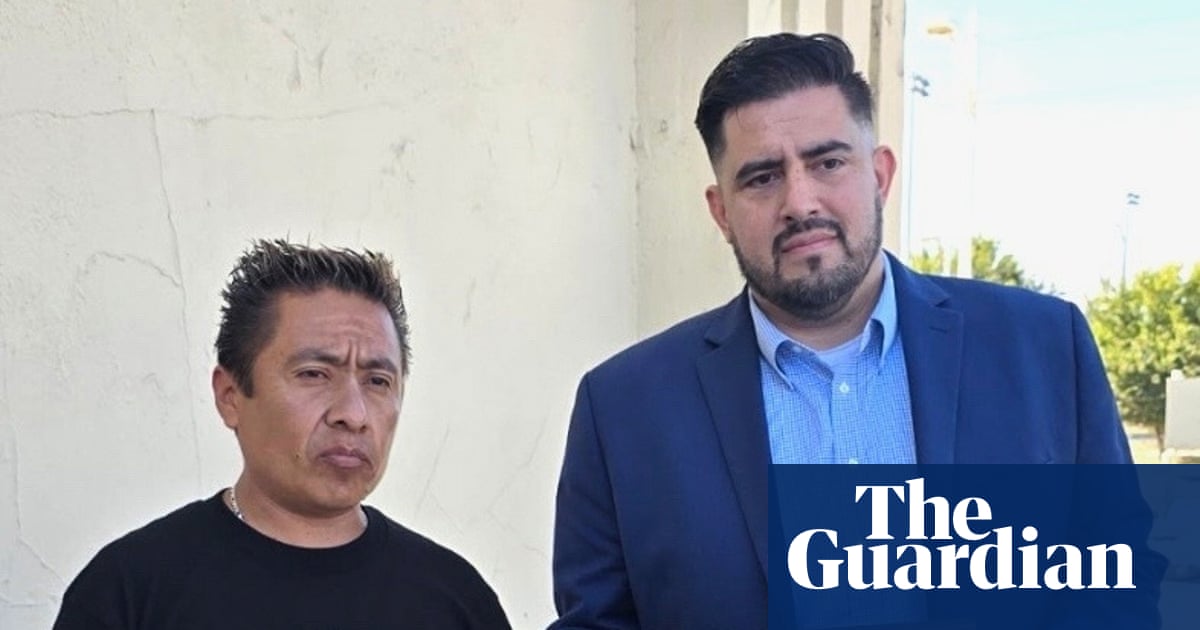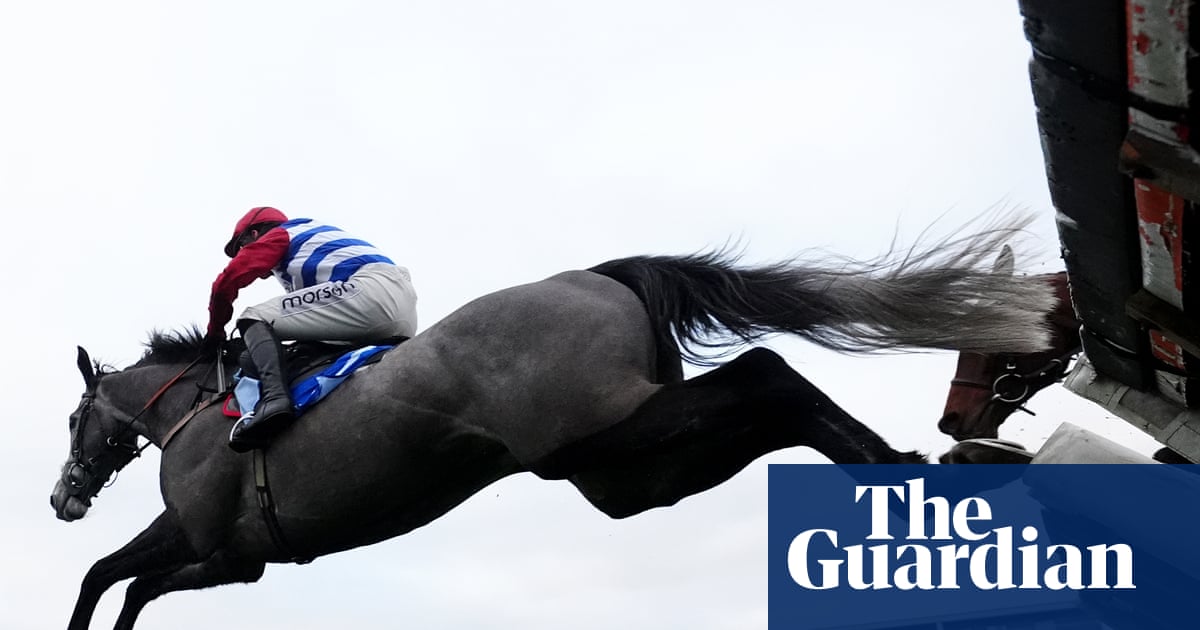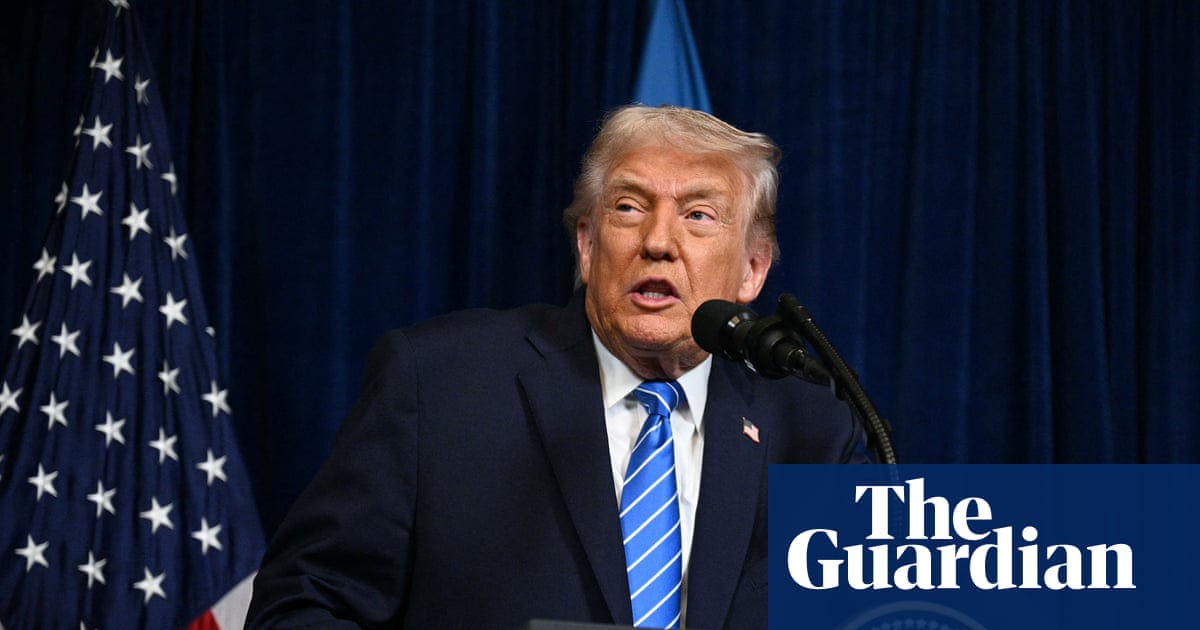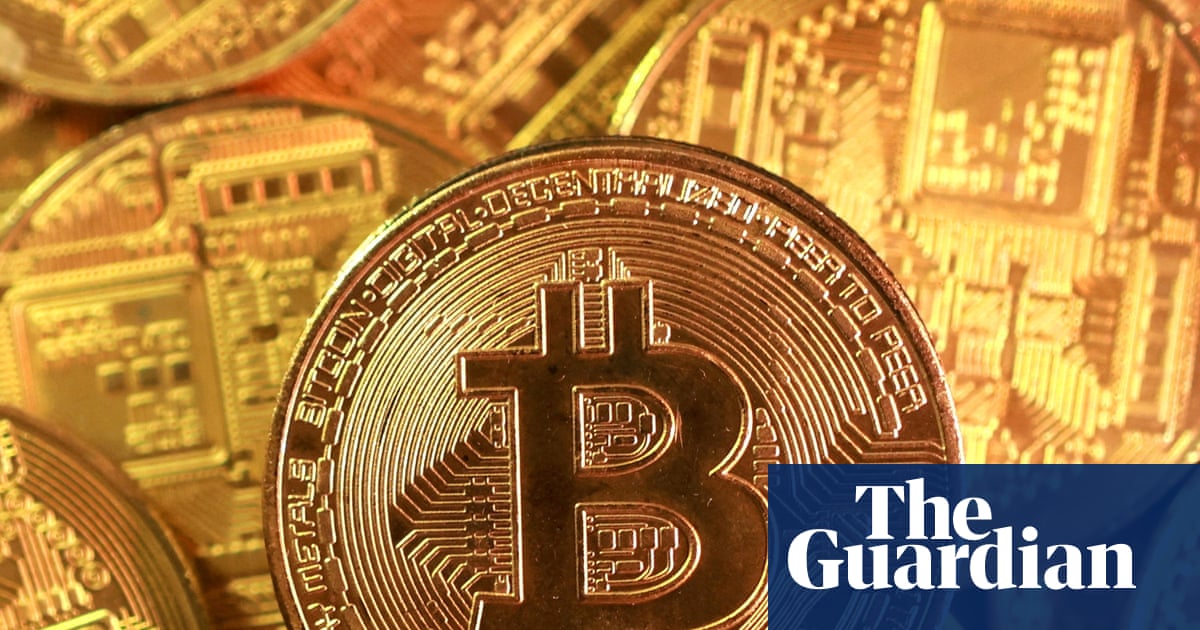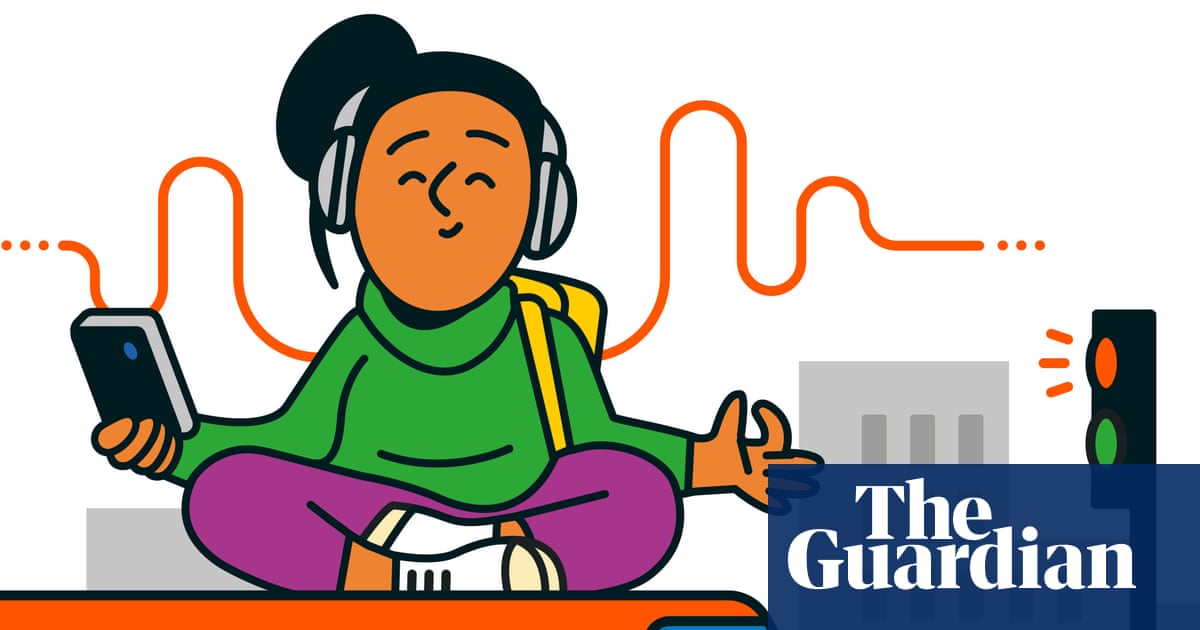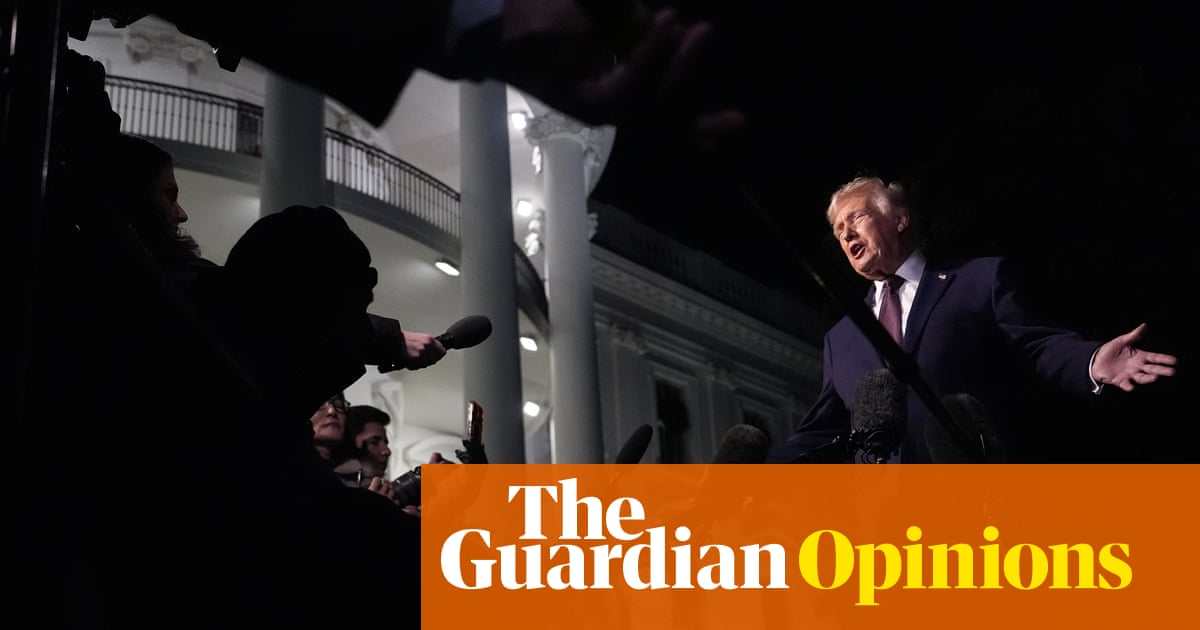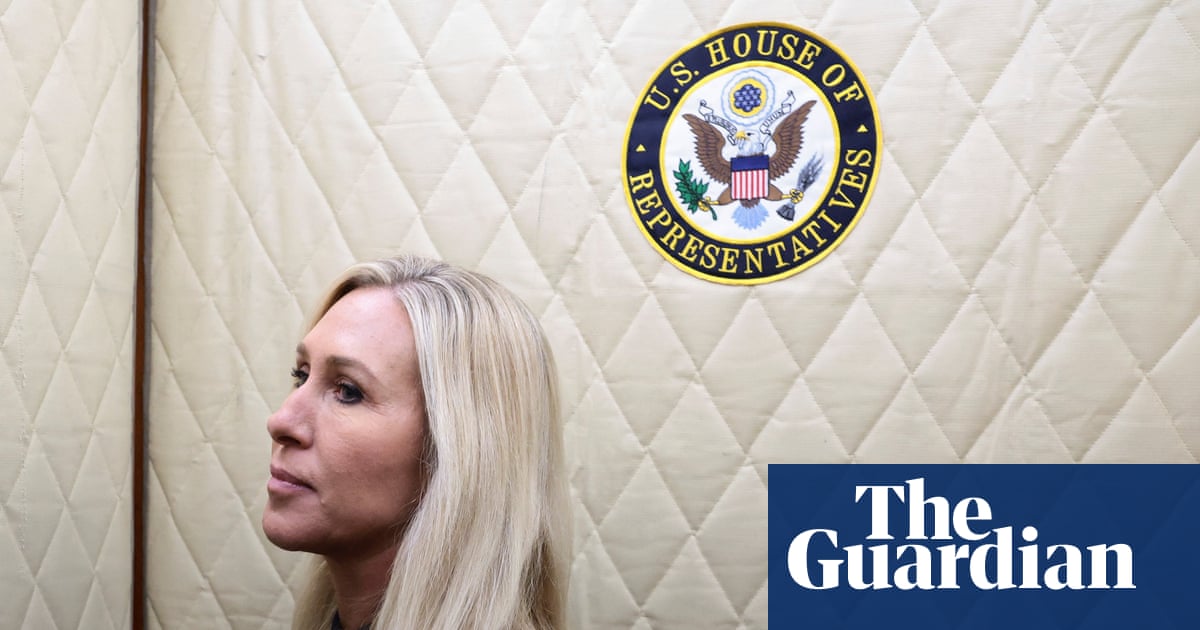“There is indeed something about captivity that makes one feel like a state of somewhere between life and death,” wrote Umar Khalid in June in a letter penned as his fifth year languishing behind bars approached.
Few understand the purgatory of jail like Khalid. For five years – since his arrest in September 2020 under a draconian terrorism law – he has remained India’s most prominent political prisoner, to many a potent symbol of the systematic crushing of dissent under the dominant Hindu nationalist regime of the prime minister, Narendra Modi.
This month the Delhi high court became the latest to deny the bail pleas of Khalid and his alleged co-conspirators. His bail case is now with the supreme court, where a hearing was delayed again on Friday. In the meantime he has remained detained in Delhi’s notorious Tihar jail without a conviction to his name.
Khalid, a Muslim and leftwing activist, is accused of being a key conspirator in the Delhi riots in which violent religious mobs rampaged across the north-west of the city in February 2020. Most of the 53 people killed in the riots were Muslims and several mosques were burned to the ground.
Before his arrest Khalid had emerged as one of the faces of an anti-government protest movement after the Modi government passed a citizenship law in late 2019 that was seen as discriminatory to Muslims. The protests that erupted were the first widespread challenge to the Modi regime and were met with brute force by the state. Dozens were killed by police fire and activists were detained and tortured.
In the months that followed, many of those who had been prominent protest organisers and voices began to be accused of acts of terror, while figures associated with Modi’s Bharatiya Janata party who had made direct calls to violence in Delhi just before the riots erupted faced no action.
Khalid has denied all charges, and the case against him and other Muslim activists named in the police charges has drawn scrutiny and criticism from lawyers and human rights groups. Much of the case against him concerns alleged secret meetings disclosed by uncorroborated witnesses and his membership of certain WhatsApp groups where he did not post any messages. Khalid was not in Delhi when the riots took place and the speech he is accused of making to stir up the riots took place more than 1,000 miles away in Maharashtra state.
It was here, on camera, where Khalid told a crowd: “We won’t respond to violence with violence. We won’t respond to hate with hate. If they spread hate, we will respond to it with love.”
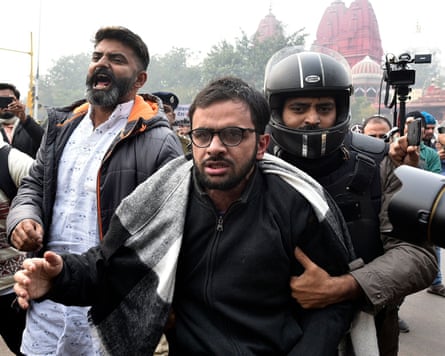
In a mounting number of Delhi riots cases, the Delhi police have been found by judges to have fabricated evidence, created fictitious witnesses and forced witnesses to record statements dictated by officers. Delhi police have not responded to these allegations.
Shuddhabrata Sengupta, a friend of Khalid’s who has written extensively about his case, said the Kafkaesque situation Khalid had been put through in trying to get bail demonstrated that “the process is the punishment here”.
“The message it is intended to give is clear: that if you are a Muslim in India today, and you dare to stand up for your rights and for peace and non-violence, you will be persecuted,” Sengupta said.
In a joint statement released on the fifth anniversary of Khalid’s detention last week, Amnesty International and six other human rights organisations condemned his “continued unjust detention without trial” and called for his immediate release.
“Starved of justice, Khalid’s prolonged persecution exemplifies the derailment of justice in India as it makes a mockery of international human rights principles,” said Aakar Patel, the chair of Amnesty India, whose operations were shut down by the Modi government in 2020. “Khalid’s detention is not an isolated case and is emblematic of a broader pattern of repression faced by those who dare to exercise their rights to freedom of expression, association and peaceful assembly.”
Before his arrest, Khalid had made himself a thorn in the side of the Modi government, which came to power in 2014. An outspoken student activist at Delhi’s Jawaharlal Nehru University (JNU), where he was studying for a PhD, he was vocal against the rising tide of anti-Muslim hatred and persecution under Modi’s Hindu nationalist regime. In 2016, after a protest against capital punishment drew national media attention, Khalid was arrested and briefly detained on sedition charges.
It was the beginning of what his partner, Banojyotsna Lahiri, 41, who was also a PhD student at JNU, described as a “targeted campaign of hate” against Khalid by the Indian media, who routinely described him as “anti-national”. In 2018, two men turned up to a Delhi event with guns and tried to kill Khalid as a “gift for India”.
Lahiri said Khalid had expected his arrest to come in 2020 and had even pre-recorded a video. However, she said they had never anticipated that five years later he would still be held as an alleged terrorist and denied the basic right to bail.
“Umar is everything this government hates,” Lahiri said. “He is Muslim, he is an intellectual, he speaks about the oppressed, he is outspoken, he is fearless and he is an unapologetic dissenting voice. This is their attempt to silence him but it won’t work. We are still fighting for democracy, and in the end the truth will win.”
Lahiri visits him every week in prison where he insists they keep the conversation joyful and they laugh together, even as he lived through a deadly Covid wave sweeping through the prison and the extreme heat of Delhi summers. To feed his voracious reading appetite, she usually carries in tomes for him, and she estimated he had now read more than 300 books while in jail – everything from Russian classics to contemporary Indian fiction and political biographies.
Each week he is allowed a 30-minute video call with his parents in Delhi, and his sisters who live abroad also regularly patch in. “I want to tell you that Umar has no regrets, nor have the years in jail broken his spirit,” said his father, Syed Qasim Rasool Ilyas, recently.
For Khalid, although he acknowledged in his recent writings that “nurturing hope in jail is a risky business”, he said sometimes he found himself “amazed how I have survived so long in the same confined space”. But he insisted that thanks to the solace of books and the resilience of his fellow prisoners, “mostly I have been at peace”.

 3 months ago
47
3 months ago
47

